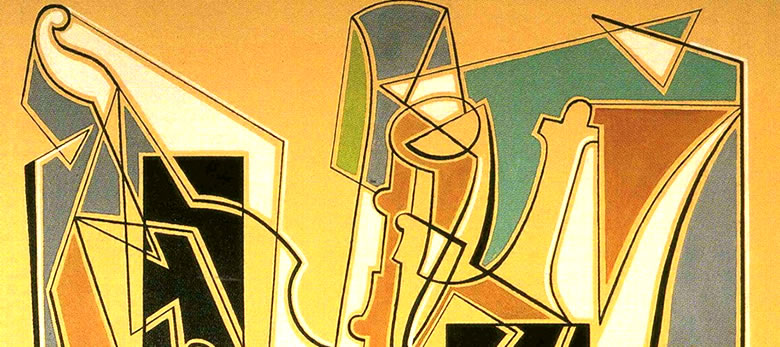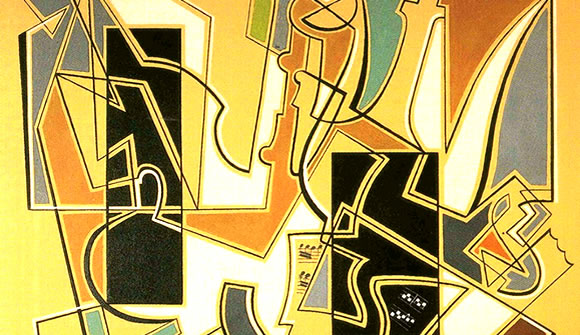Art History
Fribourg profile
The Department of Art History and Archaeology offers a doctoral training in French and German. The field of study is at the crossroads between many disciplines (history, theology, philosophy, anthropology, semiotics, literature). Art History taken in its broadest sense to include architectural history and visual studies, etc. considers works of art from Classical Antiquity to the current globalised times. It analyses the complex nature of their functions and meanings (in historical, aesthetic, cult, economic, cultural and social terms). The study of material culture and of visual and textual systems of representation provides a privileged entry point from which to consider the history of past and present societies.
Through this doctoral programme, the Department wishes to create, further and disseminate scientific knowledge, in order to foster intellectual debate on universal cultural history. The doctorate involves the formulation and public defence of thorough and in-depth research work, conducted in close collaboration between the doctoral student and the thesis supervisor (or co-supervisor).
Theses conducted within the Department might address themes concerning the following, but are not limited to:
- Works of art in their materiality
- Artistic heritage
- The functions and uses of images and objects in their historical development
- The forms and functions of architecture
- The dynamics of the perception and reception of artworks
- Artistic transfers and cultural interactions
- Spatial and visual strategies evoking the powerful and the sacred
- Artistic media and forms of visual communication
- The various stakeholders in artistic production (artists, sponsors, mediators, administrators, beholders and their relationships)
- The status of the artist, the universe of the workshop and Salons or exhibitions
- Body image in Western traditions (anatomy, portraiture, physiognomy, costume, body movements)
- Image and magic (vernacular culture, limits of rationality, counter-powers, marginal practices, etc.)
The Department of Art History and Archaeology favours both fundamental research and work aimed at more practical applications. German- or French-speaking doctoral students may enrol in different doctoral schools. Various other opportunities may arise during the writing of the thesis: attendance and/or organisation of conferences, study days, study trips, partnerships with specialists in the scientific community, teaching, etc.
Professors who are eligible to supervise theses
- Prof. Véronique Dasen
Areas of specialisation:
– Iconography and material culture in Ancient Greece and Rome
– History of the body (medicine and health)
– Magical practices, gender studies, history of children and the culture of play
– Iconography of love feelings, gems, mundus muliebris in Greece or Rome
- Prof. Michele Bacci
Areas of specialisation:
– Religious medieval art in Byzantium and in the West
– Forms of evoking and materialisation of sacred objects
– Images, objects and places of worship in the Middle Ages
– The purpose and staging of places of pilgrimage in the Middle Ages
– Forms of reception and use of medieval ritual spaces
– Cultural, religious and artistic interactions in the medieval Mediterranean area
– Compared phenomenology of various forms of religious materiality
– The survival of medieval images in modern times
- Prof. Jérémie Koering
Areas of specialisation:
– History of Renaissance art
– History of modern painting
– Poetics and artistic imagination
– Anthropology of art
– Theory of art
– Epistemology of art history
Theses can be supervised in French, English or Italian.
- Prof. Julia Gelshorn
Areas of specialisation:
– Modern and contemporary art, in Europe and the USA in particular
– Art and art theory of the 18th century
– Processes of artistic appropriation, replication and cultural translation
– Concepts of artistic subjectivity and authorship, models of artistic production
– Relationships between art and politics
– Artists' writings and interviews
– Relations between imagesand texts or speech
– Methodological questions on the history of art, contemporary art and globalisation
Theses can be supervised in French, German, English or Italian.
Studies organisation
Structure of studies
No ECTS credits can be earned.
Doctoral school
Admission
In order to be admitted to a doctorate the candidate must have been awarded an academic bachelor's and master's degree or an equivalent qualification from a university recognised by the University of Fribourg.
Before applying for a doctorate the candidate must contact a professor who would be willing to supervise the thesis work.
There is no general right to be admitted to a doctorate.
The respective conditions of admission for each doctoral study programme are reserved.



